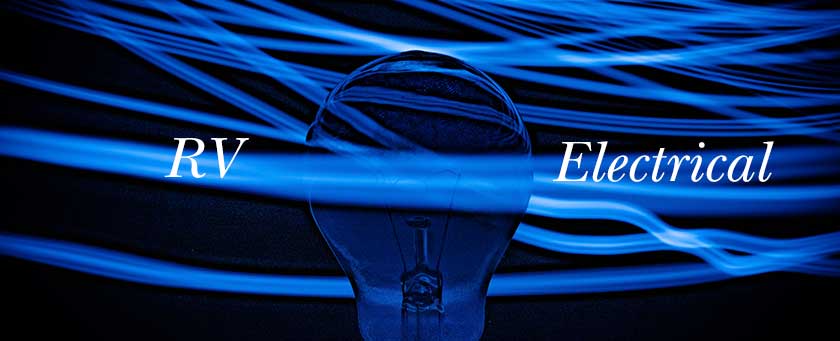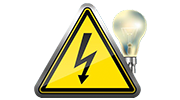RV Electrical Tips
Know what your RV is rated to handle electrically

Background photo credit to Nejc Soklic on Unsplash
Worse than no water is no electricity! Having camped at a number of venues it is appalling to see service posts that belong in a horror movie. Here are a few things we want you to watch for in addition to your RV itself.
- Check the condition of the service receptacle itself and is it the correct outlet for your system needs?
- Is the service post and its wiring in good or questionable condition?
- Before you plug into the service post it is wise to use the correct sized surge protector between your RV and the service receptacle.
- Show some love to your RV and make sure all load bearing systems and all circuit breakers are off PRIOR to plugging into you outside surge protector.
Those few steps can save you from costly electrical repairs. When you sign the contract before you park you'll often note that you are solely responsible for your RV's electrical needs and/or issues. You are always responsible for your safety.
- It is not rude to ask when the parks electrical system was upgraded, including the underground wiring.
- Undersized cabling can cause heat and low voltage issues. Cabling that is repeatedly stressed becomes fatigued and a recipe for failure.
- Electrical upgrades are not cheap. We're not saying all park owners are guilty, however, the few that cost cut with just new post receptacles and breaker panels only are putting you at risk for repairs.
- Before you plug in, check the condition of the female plug and the gap of the brass contacts inside them. They should be almost touching. A loose connection can create arcing, which in turn creates heat, in turn a melting of the plug.
- I have witnessed more than one service post on fire due to neglect of the park owner. NOTE: They are not allowed to change the melted plug to your RV. You must bear the responsibility of having it changed by a qualified electrician.
- Don't take shortcuts just because your excited to get set up and crack that cold one. It could literally be life saving by simply doing your due diligence.
Back to the RV; your RV has 2 two electrical systems and operate as follows:
- 12 volt DC which is powered by at one and at times more than one battery.
-
- it initiates the start up of your water heater, frig, furnace, aux water pump, carbon monoxide detector, most interior lights to name a few
- It is felt by some RV owners that using two 6 volt batteries in series will provide a longer discharge time but battery space and usage needs play into that.
- 120 volt AC powered by the 'shore' service post outlet or your generator
- This power comes in two amperages - 30 amp & 50 amps, all dependant on the needs of your RV
-
- this powers your microwave, TV, washer/dryer and other large appliances
- on a 30 amp service one must be a bit more careful as to how many electricity 'hogs' are used
- Coffee makers, hair dryers, hot plates, microwaves are 'hogs' ; basically anything with a heating element
- Anything that provides heat or cold are culprits
Make it a habit to check your fuses and the condition of your breakers at the start of each season. Check all visible wiring for
any defects! All it can take is an exposed wire to create a short, a spark to render your RV unsafe in a variety of ways let
alone become an insurance claim.
For service requests you may go to our Help Me! page and complete one of the Inspection Request Forms. For information only simply click on the "Information Only" form button below.
Ask us about our electrical repair services. We have old school values - we will not take shortcuts. We've built our reputation on it.

